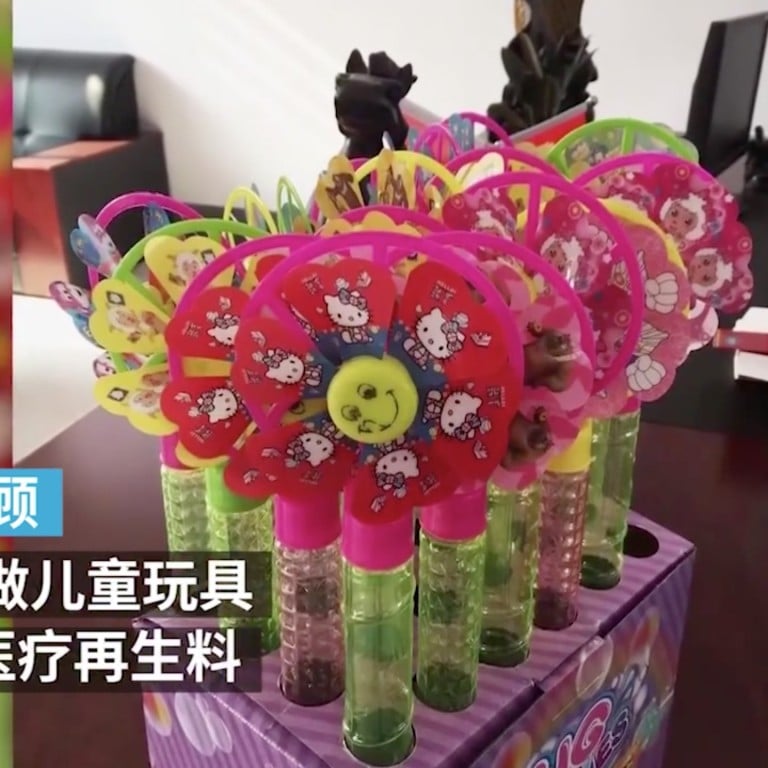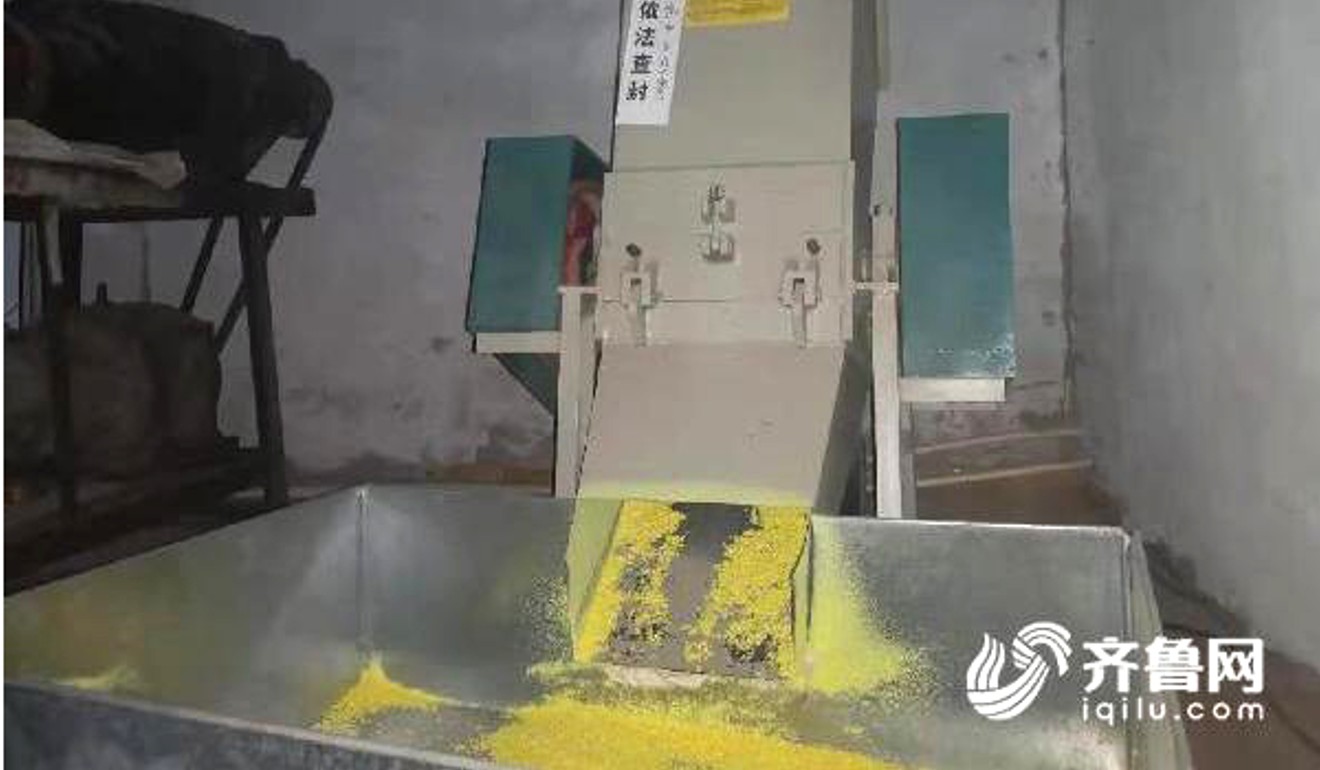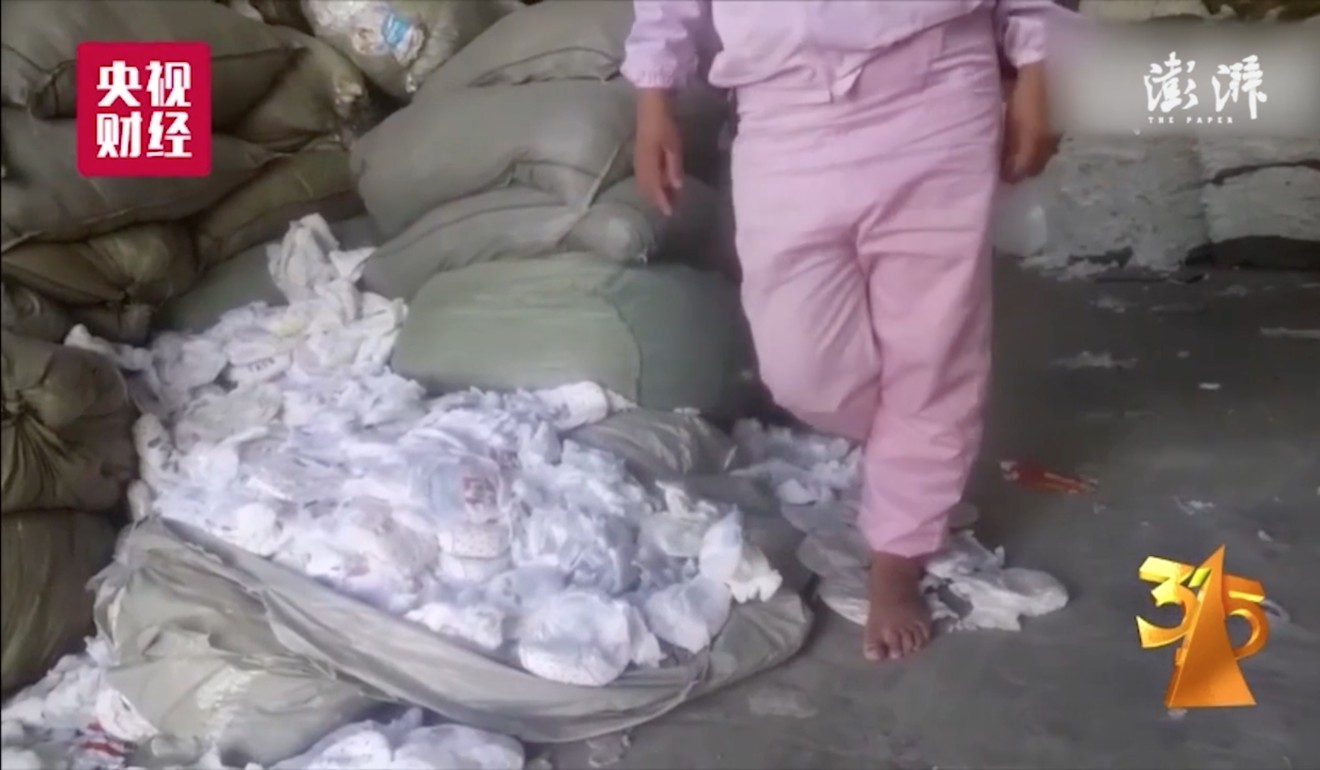
Chinese consumer rights show prompts action on factories turning plastic medical waste into toys
- Used diapers and sanitary pads being shredded and made into new ones also among cases revealed on state broadcaster’s annual programme
- But for the first time in many years, foreign brands were not in the cross hairs
Plastic medical waste recycled and made into toys and bags, and used diapers being shredded and turned into new ones were among the cases exposed on the Chinese state broadcaster’s consumer rights show this year.
But for the first time in many years, foreign brands were not in the cross hairs. The show has previously taken aim at tech giant Apple, carmakers Mercedes-Benz, Volkswagen, Range Rover and Nissan, retailer Muji and food and beverage firm BreadTalk – with accusations ranging from poor after-sales service to using unsuitable materials in their products.
This year, the show’s series of undercover reports focused on Chinese companies. It was aired as Beijing seeks to reassure foreign investors amid a protracted trade war with the United States.

One report accused chicken farmers of using an additive to colour their egg yolks sunset orange. Another said illegal workshops were using dozens of additives in snacks for children. UnionPay’s mobile payment service QuickPass was also in the spotlight, with the claim that users could lose 1,000 yuan (US$150) in just a second because the system was vulnerable to fraud.
And privacy issues were raised, with fintech company Samoyed Holding accused of collecting consumers’ mobile phone information without their consent.
But one of the worst scandals involved used intravenous lines, along with their bags, bottles and needles, being recycled in Henan, Hebei, Shandong and Shanxi provinces. According to the report, the used hospital waste was being recycled into materials to be used in plastic bags and toys.
An executive at a factory in Henan told an undercover CCTV reporter they made more than 100,000 bags a day from this recycled waste, while a toy factory in Shandong said it had become “the norm” for local businesses to use the materials in toys.

Another recycling case involved a factory in Hubei where adult diapers were made from used diapers and sanitary pads that had been put through a shredder and supplied by another firm.
An employee at the company, which makes nearly 70,000 recycled adult diapers per day, said it would cost twice as much to make them from new materials.
“But [the recycled diapers] won’t meet health standards because they’re made from waste,” the worker told CCTV.
Police try to quell Chinese parents’ protest over ‘mouldy’ school food
Hours after the show aired, police and market regulators took action, raiding a factory in Tancheng, Shandong and seizing products for investigation. One manager of Jindeli Hygienic Products was taken away for questioning, and authorities said they would carry out more inspections in the city.
Two hours later, police raided an illegal factory in Linyi, another city in the province, detaining one manager and confiscating equipment after it was accused of using medical waste to make plastic pinwheels and bubble bottles for children.
Other companies named on the show issued statements in response, with UnionPay on Saturday saying it would compensate any customer who was a victim of fraud. Shares in New York-listed Jianpu Technology meanwhile fell 13 per cent after its parent Rong360 was criticised for offering high-interest cash loans.
Viewers took to social media to question the ethics of businesses in China, one of the world’s biggest consumer markets.
“What is the bottom line of our society?” one person asked on microblogging site Weibo.
Another said: “I just want to know what is actually safe for us [to use].”

